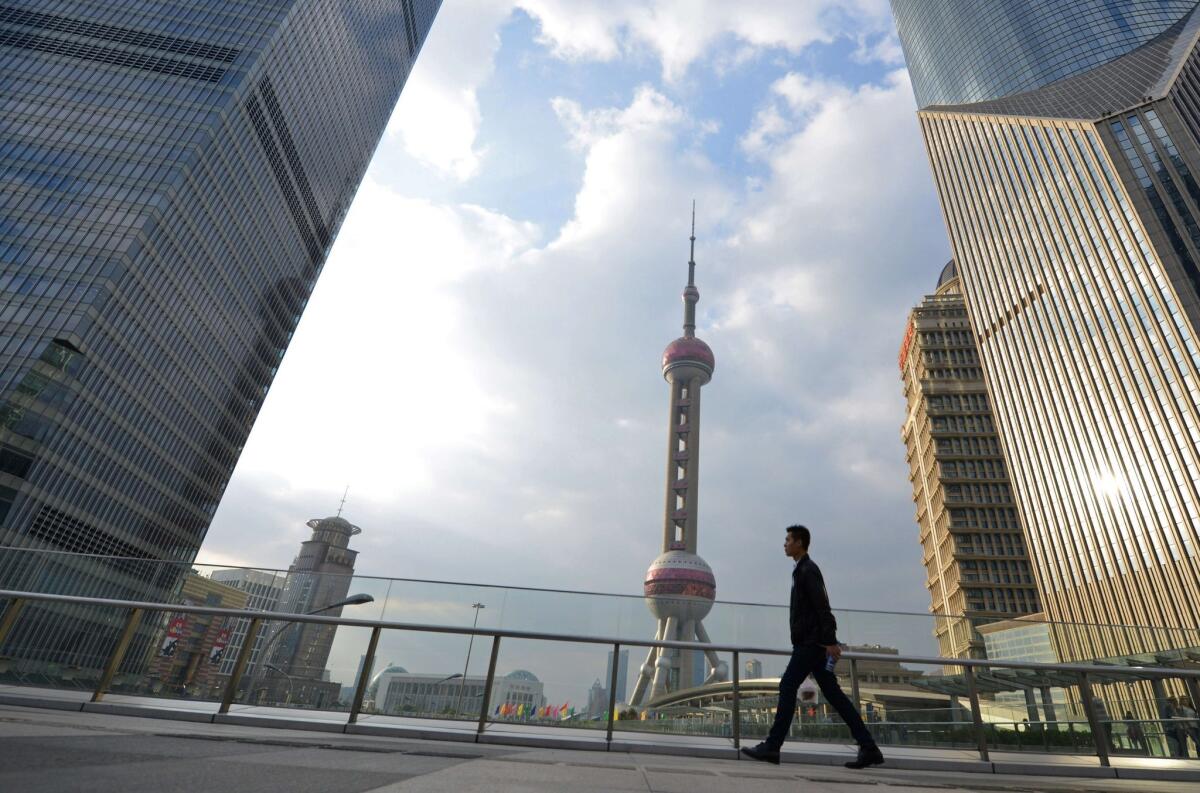With money at risk, China is restrained about a possible U.S. default

BEIJING -- As the clock ticked down for the U.S. to go into default, economists in Beijing were paraphrasing the old adage: If you owe the bank a few thousand dollars, you’ve got a problem; if you owe a billion, it’s the bank that’s in trouble.
So it is the case for the Chinese holding an estimated $1.3 trillion in U.S. Treasury securities, watching with bewilderment from afar as Democrats and Republicans play a risky game of chicken.
“In many ways we are worse off than the United States. We are in a very dangerous situation,” said Zhao Xijun, deputy dean of the school of finance at Beijing’s Renmin University.
If it were not for their vulnerability, China’s Communist Party rulers might be engaging in some schadenfreude, trumpeting the superiority of their own one-party system to the morass in Washington. But, aside from one snippy editorial on Sunday calling for a “de-Americanized world,” the Chinese state press has been conspicuously retrained.
Premier Li Keqiang, China’s top economic official, has said only that China is paying “great attention” to the U.S. debt-ceiling issue.
The main reason is that bad-mouthing the United States only further devalues China’s $1.3-trillion stake.
“What good would it do for them to be trash-talking their own assets? It would only make people nervous,’” said Patrick Chovanec, chief strategist of Silvercrest Asset Management Group in New York.
Furthermore, flogging the United States for its fiscal irresponsibility begs the question of why the Communist Party leadership is investing so much of the nation’s wealth in U.S. Treasuries.
That in turn invites criticism of an economic policy that favors exports over domestic consumption, the result being that the country holds a whopping $3.66 trillion in foreign reserves while many ordinary Chinese lack healthcare, decent education and housing.
“To change this situation would require drastic economic reforms,’’ said Zhang Ming, deputy director of international finance at the Chinese Academy of Social Sciences.
ALSO:Iran nuclear talks resume amid pressure from Congress
Germany’s Angela Merkel struggles to form a government
Egypt’s American soccer coach goes from hero to scapegoat
Twitter: @BarbaraDemick
More to Read
Sign up for Essential California
The most important California stories and recommendations in your inbox every morning.
You may occasionally receive promotional content from the Los Angeles Times.










